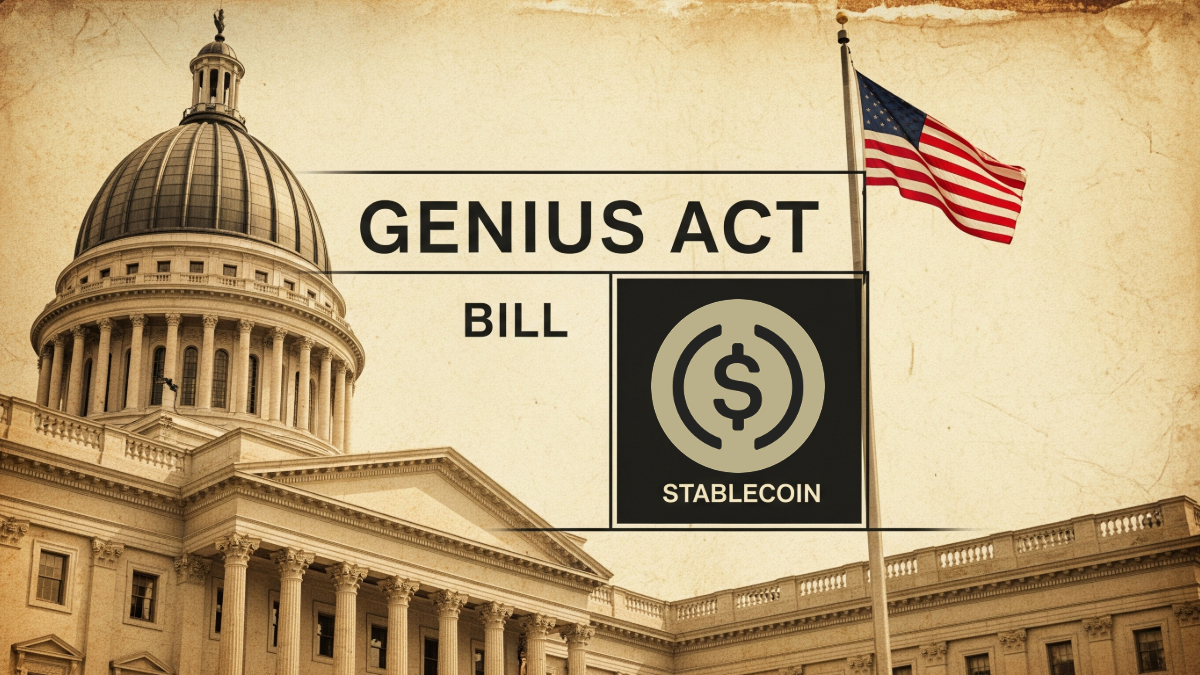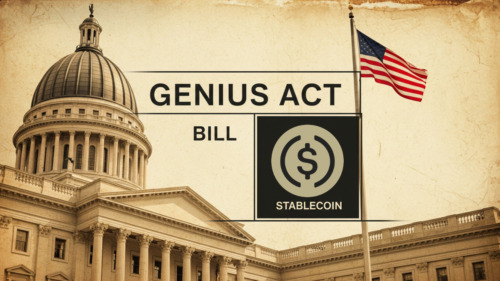House Crypto Blitz: GENIUS Stablecoin Bill Heads to Trump; CLARITY and Anti‑CBDC Measures Clear Chamber

- The GENIUS Act passed with strong bipartisan support, 308–122, and awaits the president’s signature.
- Conservatives initially blocked debate, demanding stronger safeguards against central bank digital currencies.
- The legislation marks the first federal framework for stablecoins, viewed as a breakthrough by supporters.
In a key development for digital asset regulation, the US House has passed the GENIUS Act in a 308–122 vote, clearing its path to President Donald Trump’s desk for signing. The legislation aims to establish a clear framework for stablecoins, digital currencies linked to assets like the US dollar, and introduces oversight rules for issuers alongside consumer protection mechanisms.
Alongside the GENIUS Act, the House also approved two additional crypto-related bills. The Digital Asset Market Clarity Act, which passed 294–134, splits regulatory duties between the Commodity Futures Trading Commission (CFTC) and Securities and Exchange Commission (SEC) and defines types of digital assets.
The Anti-CBDC Surveillance State Act, which narrowly passed 219–210, would block the Federal Reserve from launching a central bank digital currency (CBDC), a move Republicans argue protects citizens’ financial privacy.
The path to Thursday’s vote was marked by internal Republican conflict. On Tuesday, a group of conservative lawmakers blocked the rule to advance the bills, defying party leadership and delaying proceedings for nearly ten hours. A compromise was struck after the Anti-CBDC bill was attached to the National Defense Authorisation Act, prompting the holdouts to reverse their votes.
Related: GENIUS Act Back on Track After Presidential Pow-Wow with Republican Holdouts
Industry Leaders React
Supporters of the GENIUS Act argue the vote sets a precedent for digital asset legislation and will build trust in the crypto market.
The Genius Act unlocks broader adoption by traditional institutions and brings much-needed trust and transparency to the sector. This paves the way for compliant, bank-backed digital money and new solutions for corporate treasuries, helping to bridge the gap between innovation and investor protection.
 Andrew Forson, President of DeFi Technologies
Andrew Forson, President of DeFi Technologies Congress has moved comprehensive legislation that provides enforceable, tailored rules for stablecoins – a foundational technology for the future of finance. This marks real momentum toward regulatory clarity that protects consumers, supports innovation, and reinforces the strength of the U.S. dollar in the digital economy.
 Summer Mersinger, CEO of the Blockchain Association
Summer Mersinger, CEO of the Blockchain Association However, Democratic critics, including Representative Maxine Waters, expressed fears that the bill facilitates corruption and foreign interference, pointing to Trump’s growing crypto interests. The White House has denied any conflicts of interest, stating that Trump’s assets are held in a trust managed by his children.
The GENIUS Act now awaits the president’s signature and, if enacted, will become the first federal law focused on stablecoin oversight in the US.Related: WLFI Holders Greenlight Trading in 99.94% Landslide Vote






